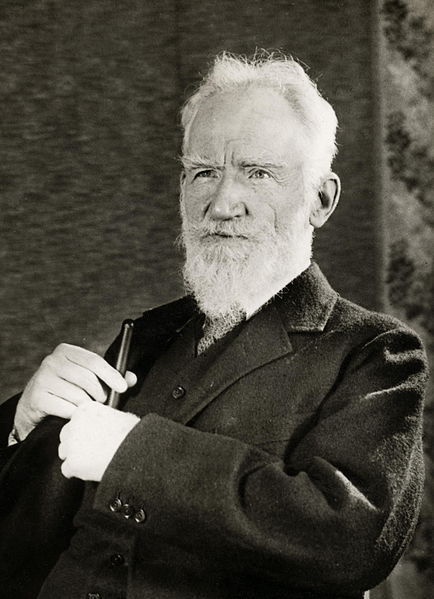“Still, I felt so deadly dull that I should hardly have survived to tell the tale had not a desperate expedient to wile away the time occurred to me. Why not telegraph to London, I thought, for some music to review? Reviewing has one advantage over suicide. In suicide you take it out of yourself; in reviewing you take it out of other people.”
That was George Bernard Shaw, the greatest music critic who ever lived, on one of the roles of the profession. H.L. Mencken is his American counterpart.
I have been thinking again about the duty of the music critic because of some unfavorable reviews I have written lately. Probably not enough, because unfavorable reviews have become rare indeed, in Maine and elsewhere.
I chose Shaw because the first duty of the critic is to entertain. (Dorothy Parker’s review of Christopher Isherwood’s play “I Am a Camera” comes to mind: “No Leica.”) If he or she is not read with interest, nothing can be accomplished.
A long time ago, I went around like the Elephant’s Child asking impertinent questions about what a critic should do. The first to answer was my father, who was the book reviewer, among other things, for the Philadelphia Inquirer. His answer was “to set standards.”
Old-fashioned perhaps, but still relevant. Western classical music is the greatest achievement of the human race, and it’s important to decide where in the pantheon a new or old composition belongs.
Standards apply to performance even more. A score is a blueprint. Without a concrete performance, it does not exist. Bad or mediocre performances can ruin a masterpiece, while exceptional ones, such as Sir Neville Marriner’s version of the Handel Fireworks Music, can make a believer out of the rankest philistine.
Noted American composer Ralph Shapey told me that a critic should be an advocate — to say to readers: “Hey, you’ve got to hear this!” In a world where there’s so much competition for time and attention, and in which contemporary music has received such bad press, he has a point.
However, to advocate also means to protest degradation of the art. I cannot think of a more criminally ignorant act than playing classical music to keep children out of a park, something that was suggested in Portland a while back.
My wife thought that a critic should educate, which is true to an extent, but all the biographies and analyses of Beethoven cannot take the place of the feeling created by the music itself, which must come before anything else.
All one can do here is what Edward Gibbon said of another critic: “He tells me his own feelings and tells them with so much energy that he communicates them.” People read reviews for the same reason that they read accounts of football games — to relive the experience.
It is also the duty of a critic to attack.
“It is sometimes said that condemnatory criticism is illegitimate and if a composition or performer is bad the critic should ignore it, giving space only to what he can praise,” said Sir Percy Scholes.
“This overlooks what may be called the double duty of the gardener, whose cultivation of the flowers will not be successful is he does not remove weeds.
“German composer and critic Robert Schumann said, ‘The critic who dares not attack what is bad is but a half-hearted supporter of what is good.’ There is much composition and performance which every critic and every musician of experience knows to be vulgar and mere pretension, and it is this which an idealist like Schumann would wish to see denounced for the public instruction.
“It is true that in the past a good deal of attack upon novel types of composition or idiom has been later proved mistaken, but it has at least promoted healthy discussion when critical silence would have failed to do so. At all events, a critic who is only expressing half his mind is only half a critic, and the constant repression of deeply felt opinion is bound in time to injure his critical facility.” (To say nothing of his credibility.)
Mea culpa. Classical music in Maine is not so weak a plant that it cannot stand a little pruning now and then.
Christopher Hyde is a writer and musician who lives in Pownal. He can be reached at:
classbeat@netscape.net
Send questions/comments to the editors.



Success. Please wait for the page to reload. If the page does not reload within 5 seconds, please refresh the page.
Enter your email and password to access comments.
Hi, to comment on stories you must . This profile is in addition to your subscription and website login.
Already have a commenting profile? .
Invalid username/password.
Please check your email to confirm and complete your registration.
Only subscribers are eligible to post comments. Please subscribe or login first for digital access. Here’s why.
Use the form below to reset your password. When you've submitted your account email, we will send an email with a reset code.